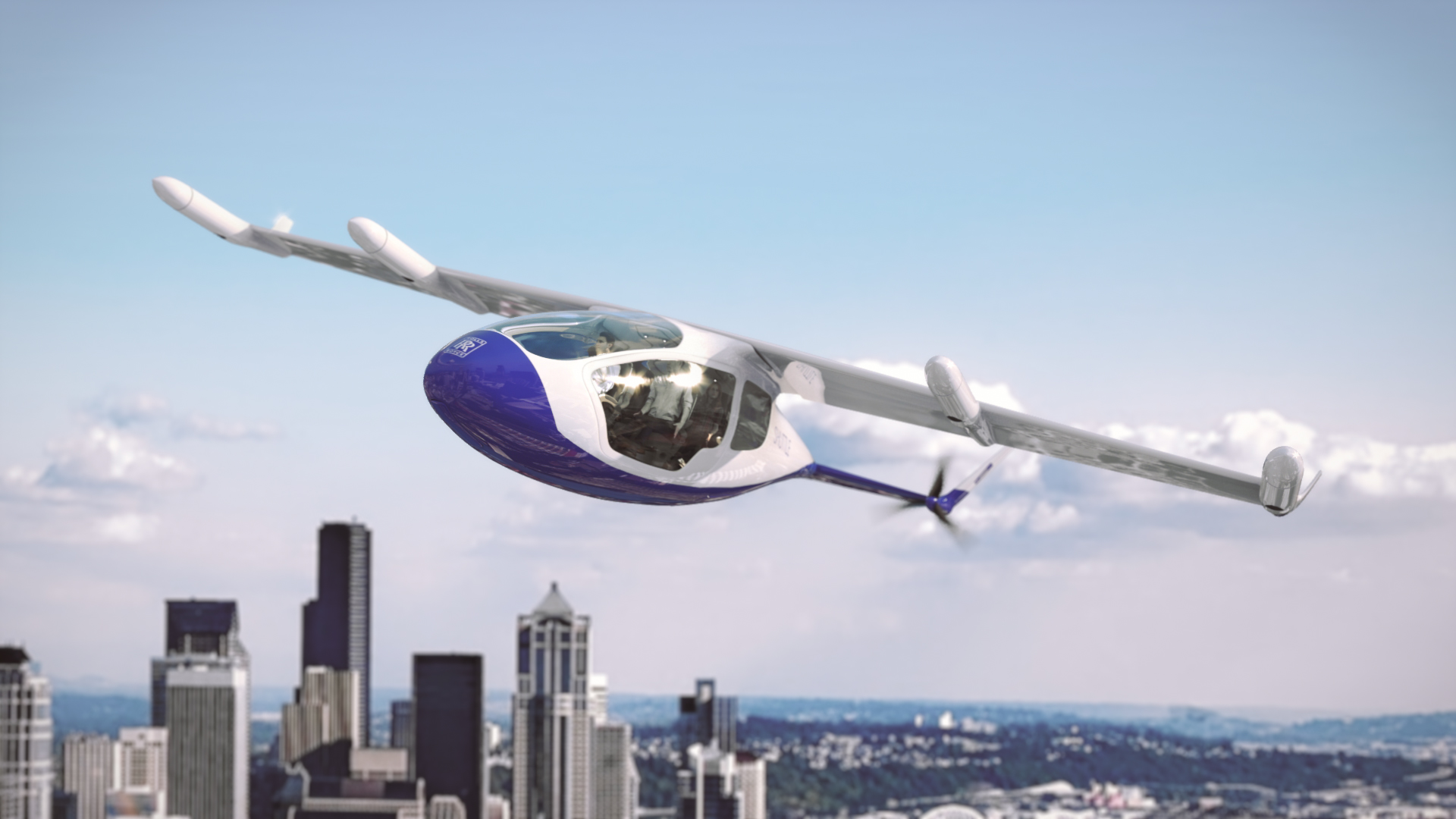

Rolls-Royce (the aircraft engine manufacturer, not the completely separate automaker) is the latest company with plans for a flying taxi. Rolls claims its EVTOL (Electric Vertical Takeoff and Landing) concept vehicle can carry up to five people at speeds of up to 250 mph for up to 500 miles.
Despite its name, the EVTOL is not all electric. A gas-turbine engine charges a battery pack, which in turn powers six electric motors mounted on the wings and tail. Rolls claims this hybrid arrangement is more practical, since refueling takes less time than recharging, and aircraft would be able to use existing airports or heliports. It’s also a prudent decision given that all-electric aircraft are still in their infancy.
The craft’s wings rotate 90 degrees, enabling vertical takeoff and landing. At cruising altitude, the four propellers on the wings fold away, reducing drag and cabin noise, according to Rolls. The EVTOL relies only on its two rear propellers for power in this configuration. All of this is theoretical, as the “unveiling” of the EVTOL at Britain’s Farnborough Airshow consisted of digital renderings only.
Like other companies developing flying taxis, such as Airbus and Uber, Rolls-Royce expects the vehicles to be used in cities. The company believes population growth will overwhelm conventional forms of transportation, requiring the introduction of flying taxis to provide a new form of “personal mobility.” But while zipping around above city streets sounds appealing, the technical challenges surrounding flying taxis are significant.
Flying taxis (as well as flying personal cars) have been a dream of engineers and futurists for decades, but no one has been able to make them work successfully on a large scale. The issues that have grounded previous efforts, such as balancing car-like passenger space with weight and aerodynamics, perfecting vertical takeoff and landing, and the need for an urban air-traffic control system, remain. The only thing that’s changed is the number of companies willing to pursue flying taxis despite those challenges.
Uber hopes to launch pilot flying-taxi services in Los Angeles, Dubai, and the Dallas-Fort Worth metropolitan area in 2020. Airbus is backing a startup called Vahana that conducted a 53-second test flight earlier this year, and has teamed up with Italdesign and Audi on a concept vehicle that morphs from a car into an aircraft. But despite the ambitious plans, these companies are far from ready to launch commercial-scale flying taxi services.